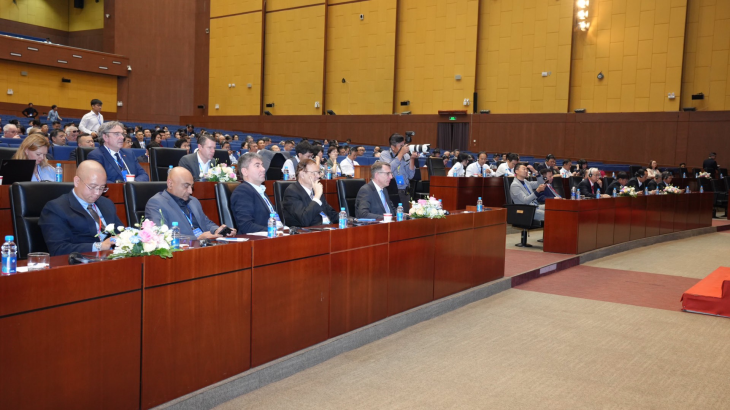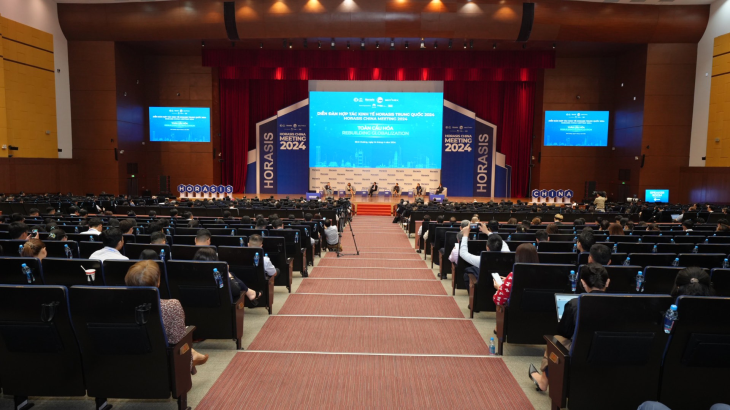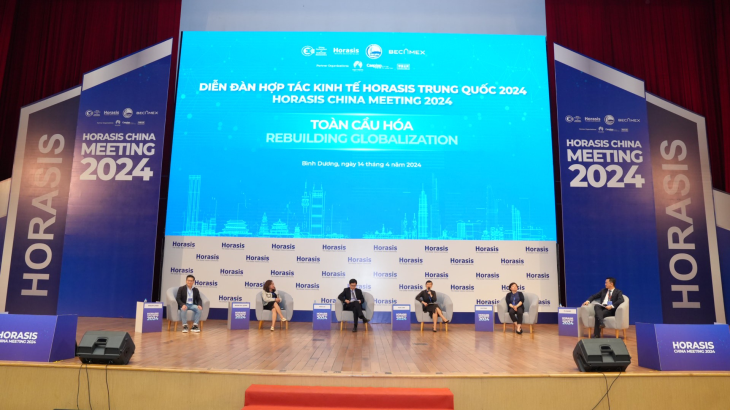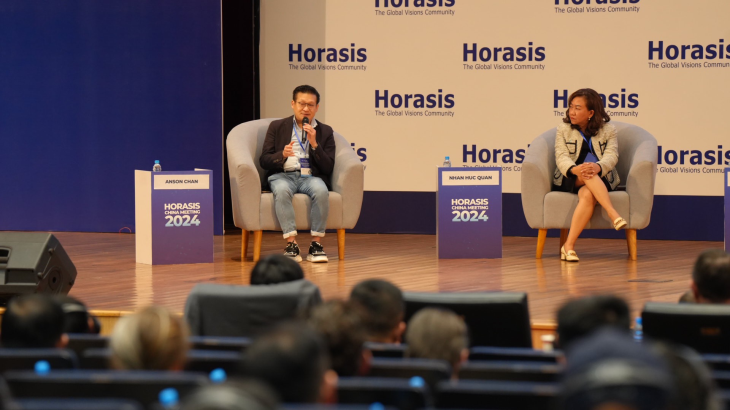The speakers of the Plenary were Mr. Anson Chan - Chairman and Managing Director, Bonds Group of Companies, Hong Kong, China; Mr. Fu Qiang - Chief Engineer, China Sinopharm International Corporation, China; Mr. Mike Liu - Vice President and Senior Fellow, Center for China & Globalization, China; Ms. Nhan Huc Quan - General Director, NewToyo Company, Viet Nam; Ms. Zhi Peng - Secretary General, Zhongguancun M&A Promotion Association, China.

Delegates attend the Plenary Session
At the Plenary Session, speakers discussed and clarified the content of Inter-Asian and global trade that has rebuilt after the pandemic, with Viet Nam and China both poised to become centers of new global trading routes. Product sectors that show the greatest promise for each country; major transport infrastructure developments aid the development progress and strengths of each country.

Overview of the Plenary Session
According to the speakers, in 2023, after the COVID-19 pandemic, the Chinese Government has many policies to restore the economy such as opening the market and increasing exchanges and cooperation. Seeking and exploiting the potential for cooperation in developing the pharmaceutical industry between Viet Nam and China, speaker Fu Qiang - Chief Engineer, China Sinopharm International Corporation, China said that this is a potential field between the two countries. Viet Nam and China can cooperate in providing raw materials for the pharmaceutical industry, and Viet Nam can export pharmaceutical products through transit markets between different countries in Southeast Asia. Chinese pharmaceutical companies can promote cooperative relationships by transferring technology to produce traditional medicine products; and financial and human resources support in Viet Nam to develop pharmaceuticals in Viet Nam.

Speakers discuss at the Plenary Session
Sharing about solutions to overcome the middle-income trap, speaker Anson Chan - Chairman and Managing Director, Bonds Group of Companies, Hong Kong, China said that if countries with emerging economies do not find solutions to overcome the middle-income trap, they will not be able to continue to develop. Taking typical examples of countries facing the above situation such as Thailand, Malaysia, and even Viet Nam, speaker Anson Chan cited evidence that we can see why countries with emerging economies that are on the development path gradually stagnate. According to speaker Anson Chan, there are many reasons leading to the above situation such as Corruption, human resource training that does not meet market requirements, etc. China has taken measures to overcome this stagnation, such as fighting corruption, improving the quality of human resource training; upgrading infrastructure in a modern and synchronous way, etc. However, China's economy is still growing slowly compared to the plan. There are many lessons that Viet Nam can refer to from China to find solutions to overcome the above situation.
For Viet Nam to overcome the middle-income trap, according to Mr. Anson Chan, policies towards the people are very important.

Speaker discusses the current issue of globalization
Sharing the issue of innovation, speaker Zhi Peng - Secretary General, Zhongguancun M&A Promotion Association, China said that China has taken the initiative to build world-class parks, with investments in 05 different policies with a total value of 1 billion CNY. That is a policy to promote innovation capacity and support research capital; policies to promote technology funding for technology companies and "startups"; build science parks, nurseries, and scientific research at schools and institutes; support innovation ecosystems; and globalization involves supporting enterprises to invest abroad. There are also enterprise incubators and venture capital funds operating outside of China. The Chinese government also provides support in terms of capital mobilized from within and outside of China; capital support from the national budget.
Regarding the potential for enterprises to invest in Viet Nam, speaker Nhan Huc Quan said that the human resource factor in Viet Nam is an issue that enterprises are very concerned about. According to her, corporate income tax in Viet Nam is very good, much lower than in other countries. In the future, there will be many enterprises interested in the Vietnamese market. However, Viet Nam needs to further simplify procedures related to granting work permits to foreign workers. At the same time, it is necessary to build a safe working environment; take care of workers' lives; build a harmonious relationship between enterprises and workers to retain workers with a long-term attachment to the enterprise.